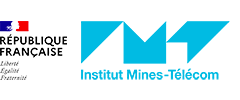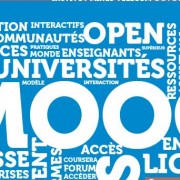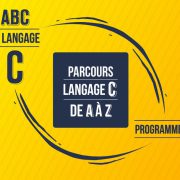MOOC: understand everything about the collaborative economy
A major actor of MOOCs in France, IMT, is launching its new collection of online courses relating to the three major transitions in our society: digital, energy and ecology, and productive. The first MOOC in this series, “Understanding the collaborative economy”, has been written in partnership with MAIF.
5 weeks to understand the collaborative economy
The aim of the MOOC called “Understanding the collaborative economy” is to help people understand why and how the collaborative economy majorly transforms the economy and society.
Open to all by definition, this new MOOC is more specifically aimed at executives and managers (in businesses as well as government). During the course the students will decrypt the collaborative economy through 5 key areas: open innovation, active consumers, new economic models, risks and opportunities, and the transformation of organizations.
This MOOC will take place over 5 weeks, each of which will require roughly 2 hours of work. It will alternate videos by teachers and experts, quizzes, and tasks evaluated by peers, and is run by Télécom Bretagne (Godefroy Dang Nguyen – cf. his interview on the R&I blog), Télécom Ecole de Management (Christine Balagué), and Télécom Saint-Etienne (Jean Pouly).
A collection of MOOCs for understanding the digital transition
Digital technology thoroughly transforms both individuals’ daily lives as well as the functioning of businesses and organizations. However, the speed of change means that not everybody necessarily has the time or ability to reflect on the stakes of digital technology, and to acquire what the Conseil National du Numérique (CNNum) calls “digital literacy”. This is why IMT has launched a large series of MOOCs which will address not only the collaborative economy, but also the influence of digital technology on changes in work, health and teaching.
“This course is at the intersection between our work to transmit knowledge to new audiences and IMT’s key positioning in terms of the three major transitions within our society,” explains Nicolas Sennequier, Director of Digital Teaching at the Institute. “We are able to bring to this project our systemic vision of digital transition; that is where our real added value can be found. We will adopt the same approach for energy transition and productive transition, which will be the subject of MOOCs in the near future”.
MAIF, partner of the collaborative economy and the MOOC titled “Understanding the collaborative economy”
For over a year, MAIF has been positioning itself in the collaborative economy sector in order to become one of its leading players today. MAIF believes in solidarity exchanges, mutual aid and sharing, and is committed to this collaborative society in which people trust each other in order to live better together.
“In this respect, since 2015 MAIF has set up a dozen or so media partnerships with press organizations, with the aim of raising awareness among a large audience about the societal changes induced by the combination of digital technology and collaborative work. The aim of this MOOC is to propose further and in-depth exploration of the subject to those who are interested”, says Philippe TAUVEL, Director of Societal Action and Corporate Communication at MAIF.
By taking part in the creation of this MOOC, the French company enables as many people as possible to understand the major transformations and challenges of this rapidly changing world, to help build a fairer and more responsible society.
Meeting on 20 September 2016 to start the new MOOC. In the meantime, sign up on France Université Numérique
Download the press release in PDF
























